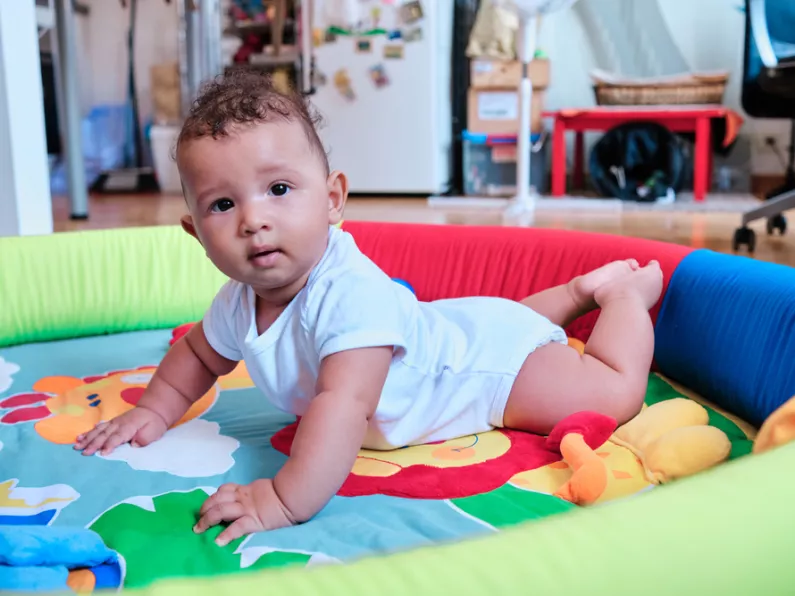One of the toughest adjustments as a new parent is the lack of sleep that comes with a new arrival, so here are 8 things about baby sleep you'll wish you knew sooner.
New babies don't have a sleep routine and that can be difficult to cope with as you navigate those first months and even years.
What's important to realise above all is that every baby is different and while you might 'just get lucky' with a baby who sleeps through, you also might have a more challenging experience.
As long as your little one is getting a healthy amount of sleep - and you're getting help when you need to catch up on some sleep - then rest assured everything is fine.
Up to 3 months, babies can spend 14-17 hours sleeping, and between 3 to 6 months, an infant’s daily sleep needs drop to 12 to 15 hours.
A realistic goal is to help your baby sleep consecutively throughout the night by the time they reach their first birthday.
8 things about baby sleep you'll wish you knew sooner
When issues such as teething, growth spurts, illness, separation anxiety or sleep regressions start leading to poor quality or little sleep, it's easy to become obsessed with how to fix it.
And we've all been there!
But here are 8 things about baby sleep you'll wish you knew sooner.
- Sleep is not a skill to be taught: Sleep is a biological function, so it can't be taught. Remember that.
- Baby sleep isn't the same as adult sleep: It's 100% normal for babies to wake every 2-3 hours throughout the night and while that can be exhausting, it's a natural built-in protection against Sudden Infant Death Syndrome.
- Supporting your baby to sleep is natural: A lot of people will scold you for nursing or rocking your baby to sleep, warning that you're spoiling them and that they'll never sleep independently. But comforting them to sleep helps them learn that going to sleep is safe and that they'll be OK.
- Night feeds are normal past 6 months: If you're breastfeeding, your prolactin - the milk-making hormone - is highest at night. That's so baby can calorie-stuff at night. Even if you're formula-feeding, your baby may continue to wake once overnight for a bottle and that's completely normal.
- You don't need to follow a strict sleep schedule: Babies have unique sleep needs and no two days are the same. So instead of obsessing over a strict sleep schedule, establish a routine and follow your baby's cues.
- Babies love contact: Imagine how scary the world is to a baby, and you are their safe place. Let them learn from you that sleep is safe.
- Your baby doesn't need to learn: Everyone connects sleep cycles, even adults. These wakenings are our brain's way of checking all is OK before we doze back over. But if your baby wakes between cycles and stays awake, it's because they need something or are uncomfortable.







